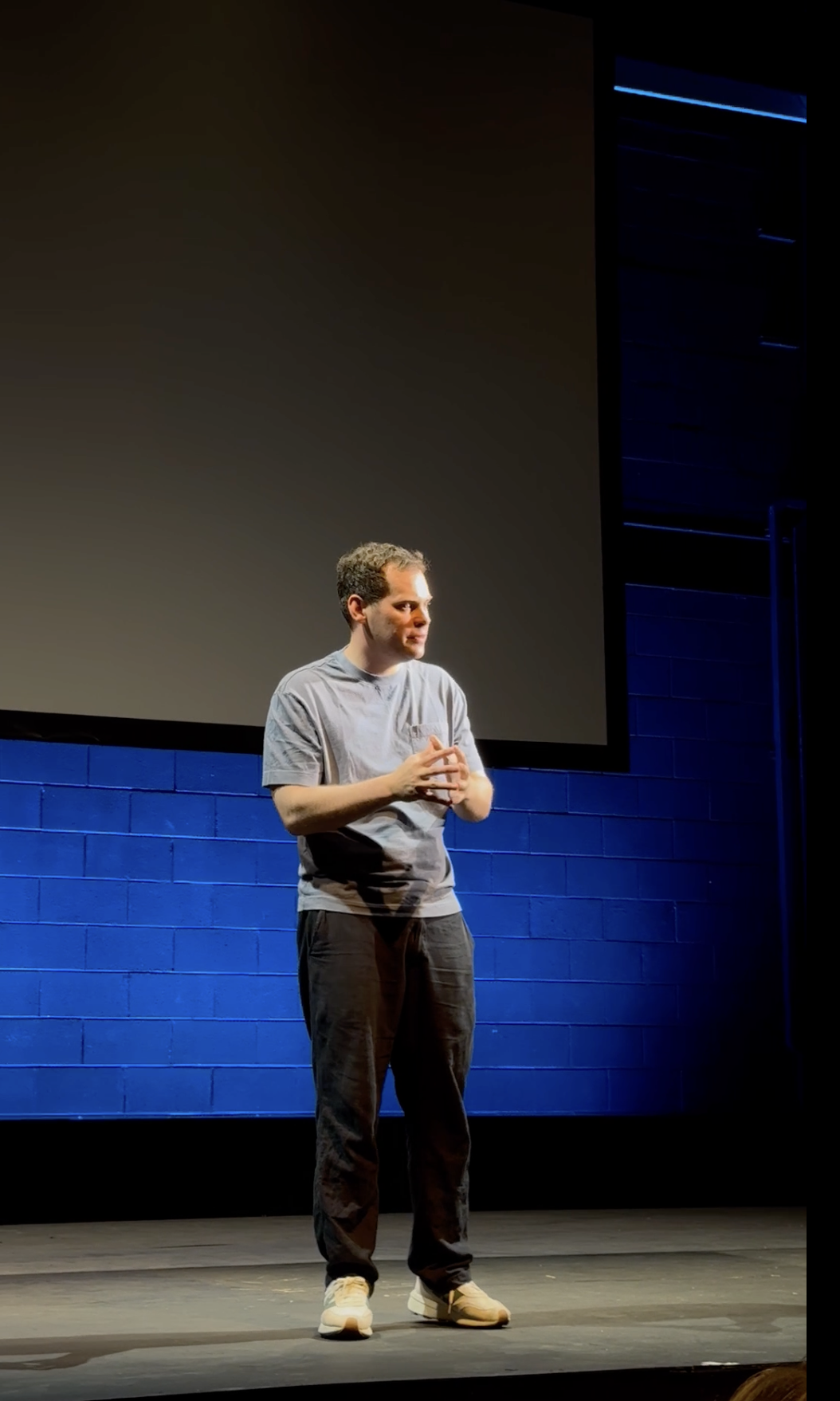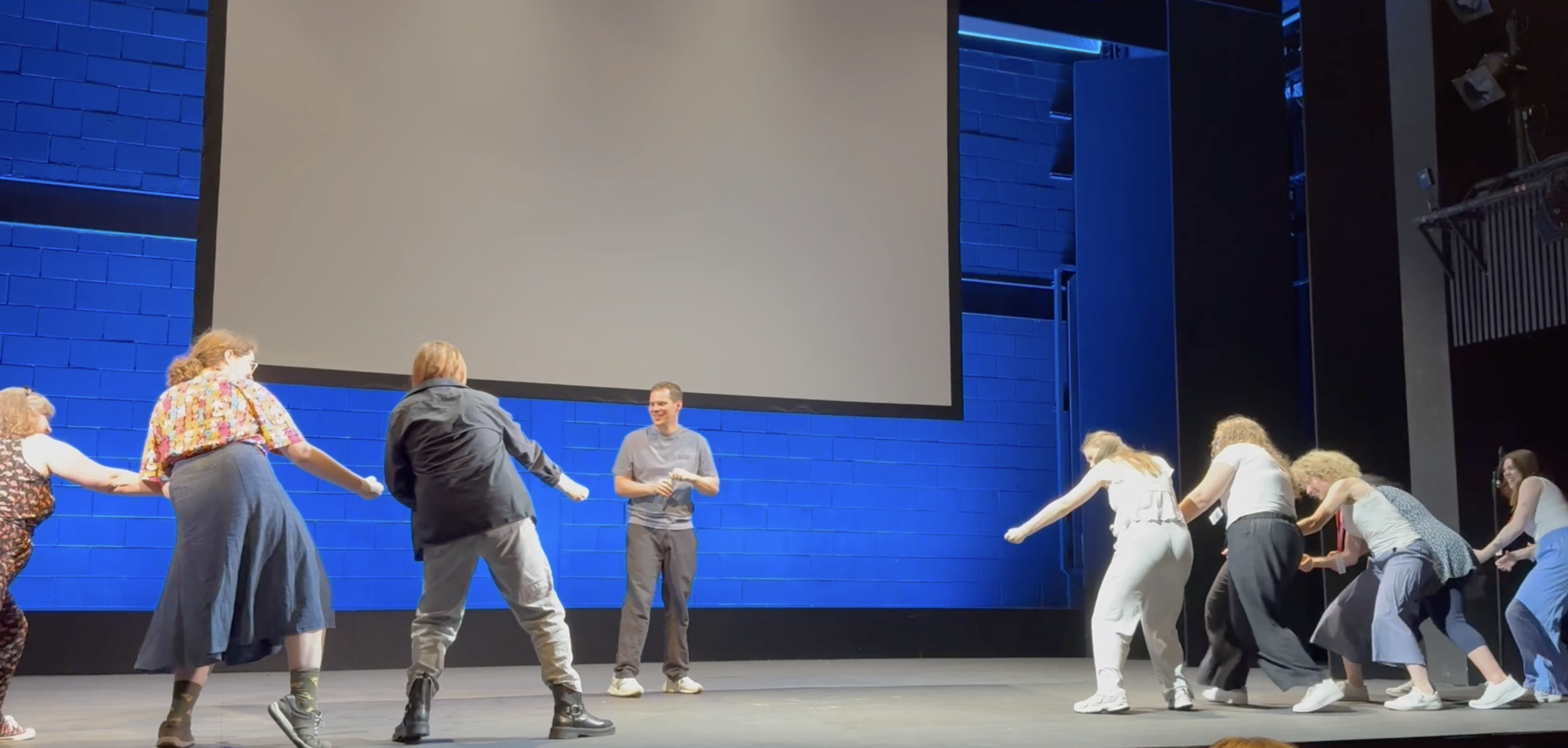Taking part in the Festival helped Kabeera's cast to address issues of gang violence.
At CSSF, we often say that the process matters as much as the performance. In Harry’s masterclass, that philosophy was thrown into technicolour. Energetic, disarming, and joyfully chaotic, Harry led us through a session rooted in improvisation and left us thinking deeply about the relationship between play, failure, and storytelling.
If you’ve ever seen The Play That Goes Wrong, you’ll already know the genius of Mischief Theatre. What looks like beautiful chaos onstage is in fact a masterclass in timing, control, and razor-sharp ensemble work. Mischief has been bringing their brand of brilliant disaster to the West End for over a decade. It was a particular joy to welcome them to Playful Spaces, especially as their first ever London venue, the Questors Theatre, was none other than CSSF’s first London venue too!

Harry’s workshop focused on improvisation, but at its heart, it was about how we create collaborative spaces where young people feel confident to try, fail, and try again. The three golden rules of improv — Listen, Accept, Commit — feel like they belong in every classroom and rehearsal room. As Harry put it, “Creating happens when we listen aggressively”. That’s not just about hearing, it’s about being present, responsive, and genuinely open to the unexpected.
One of Harry’s refrains — “Mistakes are when the wonderful things happen” — really hit home. In our work with young people, we’ve seen it time and time again: the richest learning moments often come when things don’t go according to plan. But what if we didn’t just tolerate mistakes? What if we actively sought them out? What if we let go of the urge to “get it right” and instead embraced surprises as fuel for creativity? Harry’s session taught us exactly how to treasure these ‘The Play That Goes Wrong’ moment and turn them into pivot point for creativity.
Another gem from the session was the “circle of expectation”: the idea that sometimes the most obvious thing is the funniest, the smartest, or the most fruitful. In our practice, we’re often helping young people identify what feels “obvious” in a Shakespeare play and then encouraging them to flip it, question it, or lean into it with new purpose. The sandwich-making task Harry introduced — each participant represents a complimentary (or hilariously clashing) sandwich ingredient and adding it to the recipe one by one by standing a line — was a brilliant way to explore how shared ideas evolve through active listening and joyful escalation.
Mischief was drawn to Playful Spaces because, in their words, they are “serious about silliness.” They understand that teachers — like performers — are constantly pivoting, adapting, and responding in real time. And they know that joy is not a frivolous extra — it’s a powerful, pedagogical tool. Their contribution to the day reminded us of just that.
Ultimately, Harry’s masterclass wasn’t just about games; it was a vivid reminder of how play can build connection, courage and clarity; that joy is not a frivolous extra — it’s a powerful, pedagogical tool. It asked us to reframe the role of failure, to tune into our partners, and to celebrate the unexpected. These are lessons we’ll be carrying with us into our rehearsals, our classrooms, and perhaps even into our lives beyond the rehearsal room.
Because, as Harry reminded us, when someone has to win, someone has to lose… but in improv, if we’re listening and committing, everyone gets to play!
Shumin Zeng - Schools Outreach Coordinator


